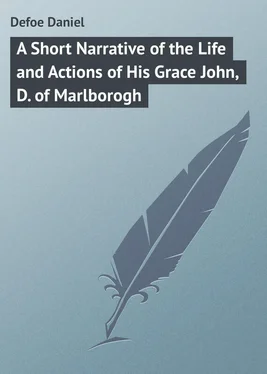Furthermore, compared to attacks on Marlborough in libels such as The Duke of M***'s Confessions to a Jacobite Priest , The Land-Leviathan : or , the Modern Hydra , and The Perquisite Monger , Defoe's pamphlet was exemplary in its moderation. Even Swift's attacks are moderate beside the majority of these 1711-12 pamphlets; not even he conjured up memories of regicide and rebellion as did the more numerous and libellous pamphleteers. For example, The Mobb's Address to my Lord M***
Конец ознакомительного фрагмента.
Текст предоставлен ООО «ЛитРес».
Прочитайте эту книгу целиком, купив полную легальную версию на ЛитРес.
Безопасно оплатить книгу можно банковской картой Visa, MasterCard, Maestro, со счета мобильного телефона, с платежного терминала, в салоне МТС или Связной, через PayPal, WebMoney, Яндекс.Деньги, QIWI Кошелек, бонусными картами или другим удобным Вам способом.
Harley as a "trickster is a doctrine as deeply rooted in historical opinion as the military skill of Marlborough and the oratorical accomplishments of Bolingbroke." John Hill Burton, A History of the Reign of Queen Anne (New York: Scribner & Welford, 1880), iii, p. 71. See also Elizabeth Hamilton, The Backstairs Dragon: A Life of Robert Harley, Earl of Oxford (London: Hamish Hamilton, 1969).
Winston S. Churchill, Marlborough; His Life and Times (New York: Scribner's, 1938), vi, pp. 85-6.
Marlborough was systematically deprived of the men upon whom he relied most. The ministry took over Army promotions and dismissed existing officers under the guise of protecting the Queen. Churchill, vi, pp. 334-5.
Burton, iii, pp. 92-3.
Defoe to Harley, July 28, 1710. George Healey, ed., The Letters of Daniel Defoe (Oxford: Oxford University Press, 1955).
Examiner , February 15, 1711. Herbert Davis, ed., The Prose Works of Jonathan Swift (Oxford: Basil Blackwell, 1940), p. 87.
Defoe's Review , January 22, 1712.
Cf. discussions of this in John Ross, Swift and Defoe: A Study in Relationship (Berkeley: University of California Press, 1941); Richard I. Cook, Jonathan Swift as A Tory Pamphleteer (Seattle: University of Washington Press, 1967), and Irvin Ehrenpreis, Swift: The Man, His Works and the Age (Cambridge: Harvard University Press, 1967), ii, pp. 450ff. and 526ff.
This is similar to an argument Defoe uses to distinguish between types of debtors in the Review (iii, 83-4 and 397-400). Whether or not the crime was "Wilful" was very important to Defoe; perhaps his revised opinion of Marlborough as most obvious in his tribute to him at his death is the result of his change of opinion about Marlborough's motives and removing him from the list of heroes who possessed the "courage of honor" as described in An Apology for the Army .
William Coxe, Memoirs of John, Duke of Marlborough with his Original Correspondence (London: Longman, Hurst, Rees, Orme & Brown, 1820), vi, p. 48.
Coxe, vi, p. 123.
Coxe, vi, 126.
The advantage France gained from Marlborough's fall and their complete awareness of it is discussed in Churchill, vi, pp. 462-69.
Coxe, vi, p. 126; Hamilton, p. 172, and The Letters and Dispatches of John Churchill, First Duke of Marlborough (London: John Murray, 1845), v.
J. R. Moore, Daniel Defoe: Citizen of the Modern World (Chicago: U. of Chicago Press, 1958), pp. 255-56; Defoe's An Appeal to Honor and Justice ; and Chalmers says Defoe wrote what "either gratified his prejudices or supplied his needs."
Davis, " A Letter to the Examiner ," p. 221.












